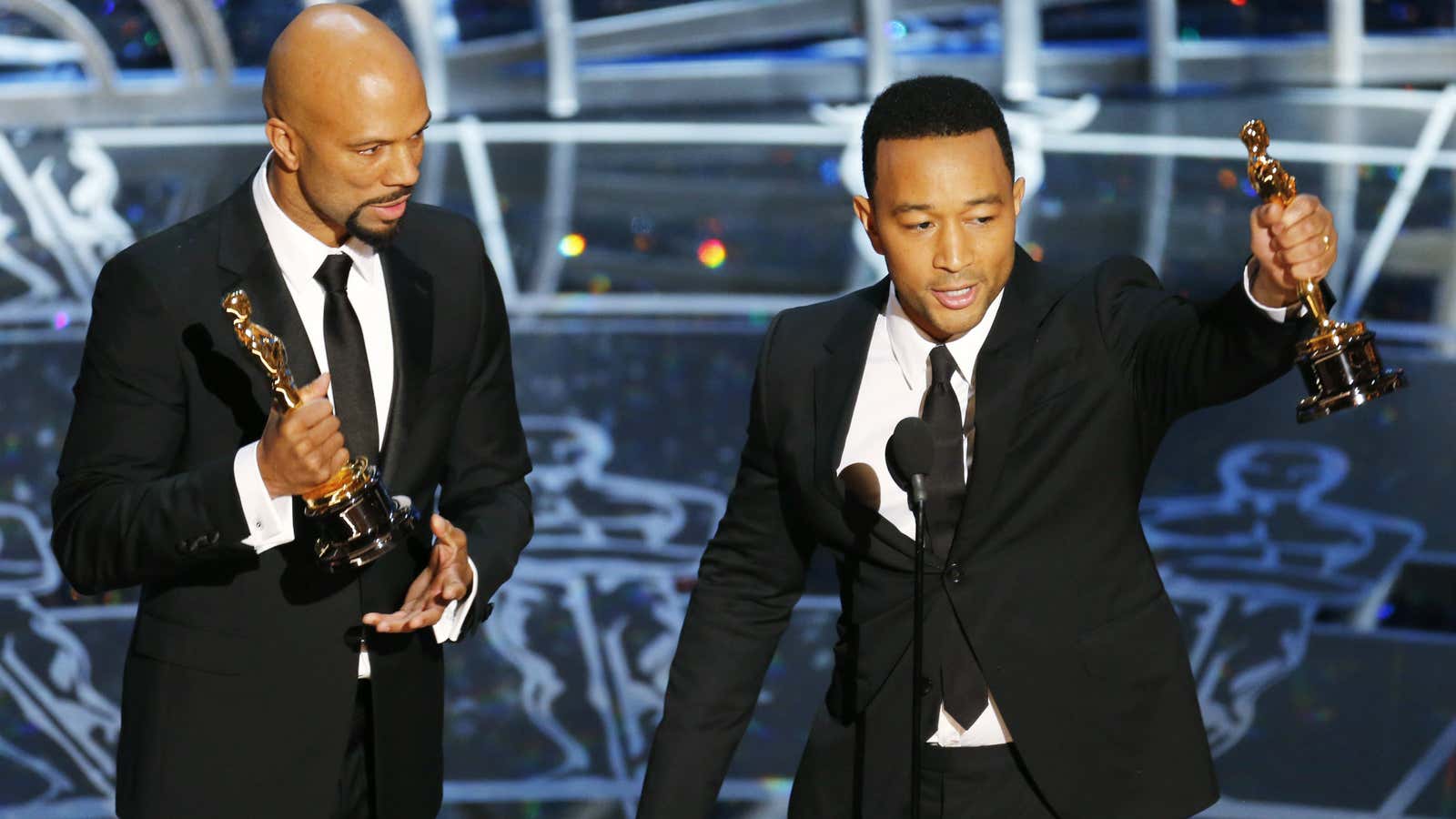The annual Academy Awards ceremony is often derided for its lame jokes, ridiculous musical numbers, and yawn-inducing length. This year, all of those things were true, and just as in years past, the award nominees were overwhelmingly white, and mostly male.
Nonetheless, several actors, entertainers and industry professionals broke with tradition and used the occasion to make heartfelt political statements on everything from inequality to government surveillance.
There was, most memorably, the speech Common and John Legend made when accepting the best original song award for Selma, riffing on democracy, human rights, and the high rate of incarceration for black men in the US:
Common paid tribute to God, the civil rights movement, the Hong Kong democracy movement, and free speech in France, while Legend said the “struggle for justice is right now” in America. “We live in the most incarcerated country in the world,” he said. “There are more black men under correctional control today than were under slavery in 1850,” he said. (The comparison was first made by Michelle Alexander, a lawyer and professor, and the author of The New Jim Crow: Mass Incarceration in an Age of Colorblindness).
While accepting the Oscar for best supporting actress, Patricia Arquette made an impassioned call for wage equality for women:
She said:
To every woman who gave birth, to every tax payer and citizen of this nation. We have fought for everybody else’s equal rights. It’s our time to have wage equality once and for all and equal rights for women in the United States of America.
Backstage, she added: “It’s time for all the women in America, and the men who love women and all the gay people and people of color we’ve all fought for to fight for us now,” a quote that was quickly dissected, and in some cases panned, on Twitter for being divisive.
Several actresses, including Reese Witherspoon, promoted the #AskHerMore campaign, which criticizes sexism on the red carpet.
And other attendees criticized the US National Security Agency’s threat to democracy. Accepting the “Best Documentary” award for Citizenfour, director Laura Poitras said:
Disclosures that Edward Snowden reveals don’t only expose a threat to our privacy, but to our democracy itself. When the most important decisions being made that affect all of us are being made in secrecy, we lose our ability to check the powers in control.
It’s pretty heady fare for a ceremony that has been so thin on political statements in its nearly 90 years that previous political statements can be neatly summed up in short “best of” lists, which inevitably include Marlon Brando’s rejection of the best actor Oscar in 1973:
Sometimes, talking politics even earned actors an unofficial ban from the ceremony, as in Richard Gere’s 1993 appeal for greater human rights in China, and especially Tibet, which resulted in a 20-year hiatus as an Oscars presenter.[protected-iframe id=”8ff857dedc53b9a3b16b4bda9b579204-39587363-67854606″ info=”https://www.youtube.com/embed/iWs-TOvS0_U” width=”560″ height=”315″ frameborder=”0″ allowfullscreen=””][protected-iframe id=”8ff857dedc53b9a3b16b4bda9b579204-39587363-67854606″ info=”https://www.youtube.com/embed/iWs-TOvS0_U” width=”560″ height=”315″ frameborder=”0″ allowfullscreen=””]
